
-
Find the right food for your petTake this quiz to see which food may be the best for your furry friend.Find the right food for your petTake this quiz to see which food may be the best for your furry friend.Health CategoryFeatured products
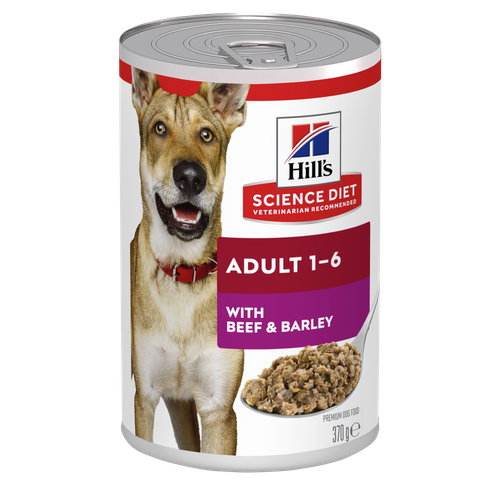 Adult with Beef & Barley Dog Food
Adult with Beef & Barley Dog FoodBeef & Barley recipe with precisely balanced nutrition to keep Adult dogs active and healthy
Shop Now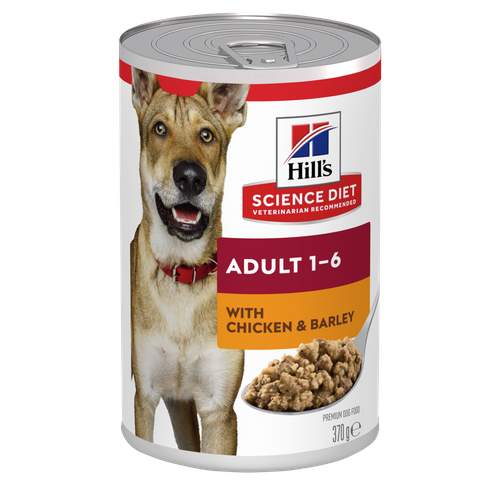 Adult with Chicken & Barley Wet Dog Food
Adult with Chicken & Barley Wet Dog FoodChicken & Barley recipe with precisely balanced nutrition to keep Adult dogs active and healthy
Shop Now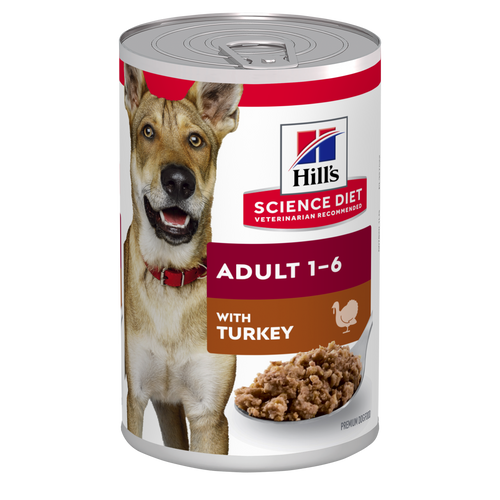 Adult with Turkey Wet Dog Food
Adult with Turkey Wet Dog FoodTurkey & Barley recipe with precisely balanced nutrition to keep Adult dogs active and healthy
Shop NowFeatured products Adult Chicken & Spinach Casserole Cat Food
Adult Chicken & Spinach Casserole Cat FoodWith delicious chunks in a decadent gravy
Shop Now Sensitive Stomach & Skin Chicken & Beef Dinner
Sensitive Stomach & Skin Chicken & Beef DinnerGourmet daily nutrition, carefully made. Tasty chunks with chicken & beef in a decadent gravy. Supports digestive health, nourishes skin and promotes a lustrous fur.
Shop Now Adult 7+ Tender Tuna Dinner Cat Food
Adult 7+ Tender Tuna Dinner Cat FoodWith delicious chunks in a decadent gravy
Shop Now -
DogCat
- Cat Tips & Articles
-
Health Category
- Weight
- Skin & Food Sensitivities
- Urinary
- Digestive
- Kidney
- Dental
- Serious Illness
-
Life Stage
- Kitten Nutrition
- Adult Nutrition
Featured articlesHill's Australian Bushfire EffortsRead More Water
WaterWater is the most important nutrient of all and essential for life. Animals can lose almost all their fat and half their protein and still survive, but if they lose 15% of their water, it will mean death.
Read More Pet Food Storage Tips
Pet Food Storage TipsWhere you store your cat and dog food can make a big difference in the quality and freshness once it is opened. Here are some common questions and recommendations for optimal storage for all of Hill’s dry and canned cat and dog food.
Read More -


It's no secret that in the world of cats, getting enough rest is a top priority. But exactly how much do cats sleep, and why do cats sleep so much? As it turns out, cats love to snooze so much because it's in their genes.
Why Do Cats Sleep So Much?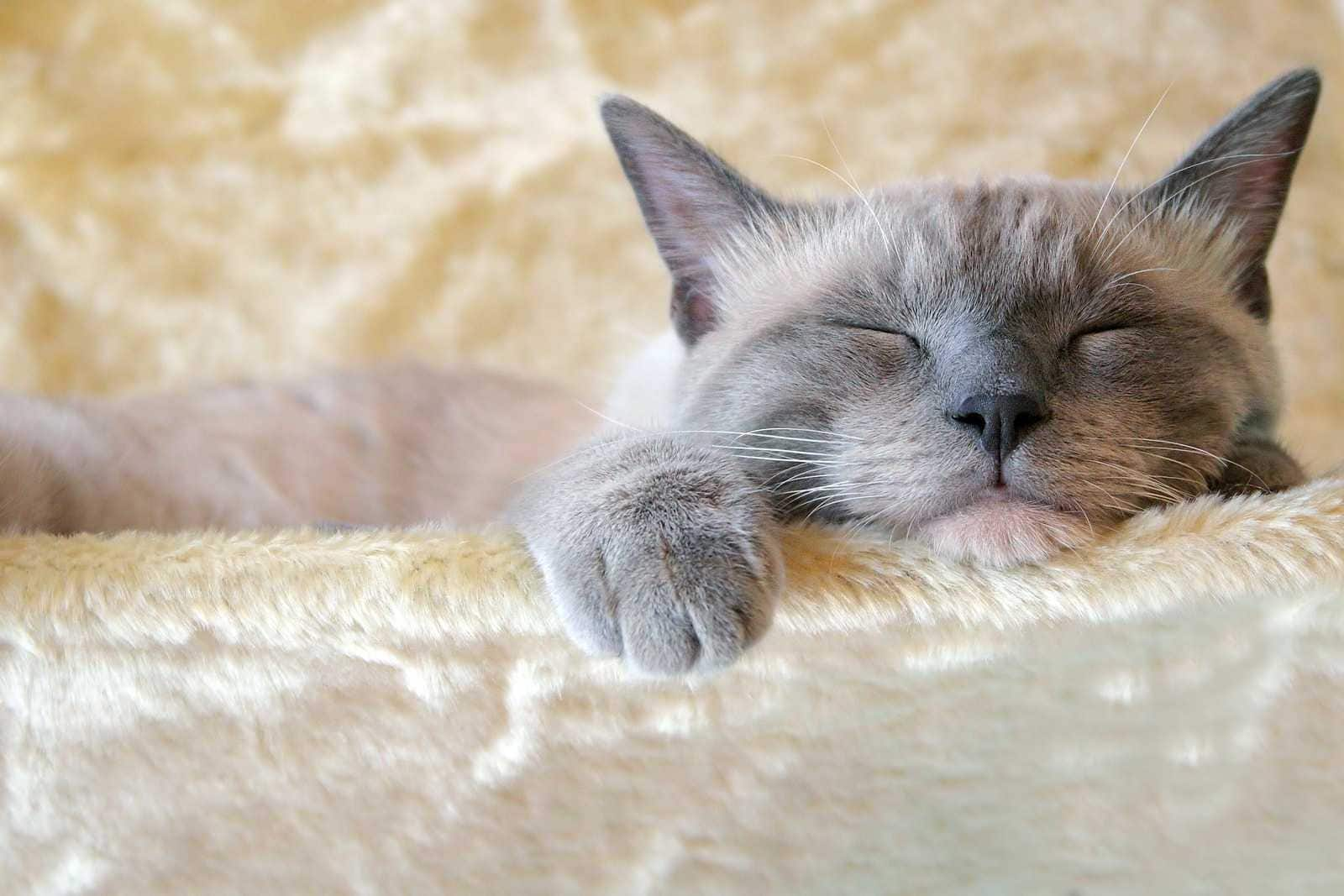
Cats exhibit plenty of weird behaviors, such as kneading, hiding in small places and hanging out in boxes, all of which are motivated by their instincts (for example, the need for comfort and security). Sleep, an innate activity, also falls into this category. How much do cats sleep? They can clock up anywhere from twelve to sixteen hours in a day.
Despite the long hours she spends curled up in dreamland, your fur baby is anything but lazy — she's resting up in preparation for the big hunt. "Hunting requires energy and [then] you add the stress factor of cats being both predator and prey," explains cat behavior expert Pam Johnson-Bennett. "Sleep is needed to conserve energy and recharge for the next hunt." Your cat may be domesticated and eat the cat food served by her human parent instead of hunting her dinner, but she retains the biological impulse of her wild ancestors.
Cats are crepuscular, which is a zoological term for animals or insects that are active in twilight (between dusk and dawn). This is why your cat will spend much of the late morning and afternoon sleeping in a patch of sun and much of the evening and early morning running in circles around the house. Just like her big cat counterparts, your little kitty adheres to this schedule of hunting, feasting and sleeping.
Energy conservation is one of the main reasons for your cat's long periods of sleep, which is where the term "cat nap" originates. In addition to deep sleep, cats can doze for brief moments, lasting anywhere from five to thirty minutes, but remain on high alert for predators or prey. If your cat has ever fallen asleep sitting up, she's just doing her job.


Tasty Tips
In Between Naps
There is no such thing as "too much" or "too little" sleep for your cat. She listens to her body and rests when needed. This is why it's not really possible to force your cat to sleep when it's 4 a.m. and you'd like to get a few more hours of slumber. According to Nicholas Dodman, director of the Animal Behavior Clinic at the Cummings School of Veterinary Medicine at Tufts University, "adequate sleep is important to a cat's health, longevity and mood and changes in sleep patterns may signal illness."
If you suspect that your cat is not sleeping enough (and keep in mind that cats sleep in what Dodman calls "standby mode," ready for action and not in a deep sleep) or in "sudden bouts of prolonged sleep," check with your veterinarian to rule out any health issues.
So, what should your kitty be doing during the other four to seven hours of the day when she isn't sleeping? Getting a lot of play and exercise! A rigorous play session is especially important in the evening, when your cat is hardwired to begin the hunt. Provide her with some fun DIY cat toys that she can chase and catch, and a durable scratching post to shred (another innate behavior).
By working with your cat's natural cycle instead of against it, both of you can get a good night's sleep.


Christine O'Brien is a writer, mom, and long-time cat parent whose two Russian Blues rule the house. Her work also appears in Care.com, What to Expect, and Fit Pregnancy, where she writes about pets, pregnancy, and family life. Find and follow her on Instagram and Twitter @brovelliobrien.
Related products

With delicious chunks in a decadent gravy

Gourmet daily nutrition, carefully made. Tasty chunks with chicken & beef in a decadent gravy. Supports digestive health, nourishes skin and promotes a lustrous fur.

With delicious chunks in a decadent gravy

With delicious chunks in a decadent gravy
Related articles
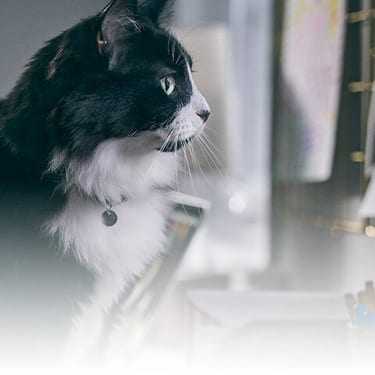
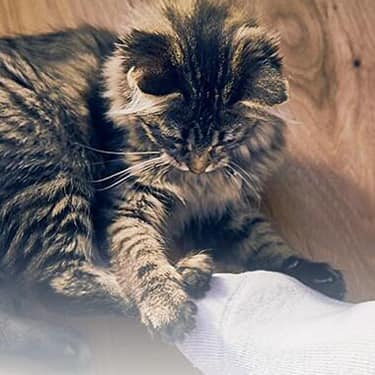
Discover which cat toys games your feline friend might like, and how they are great sources of exercise. Explore our library of articles to learn more.
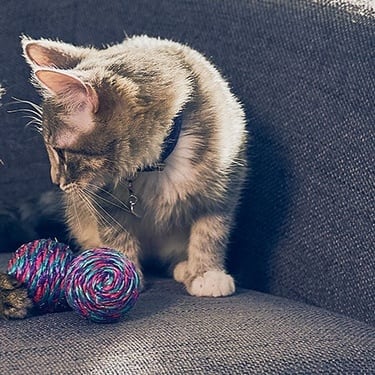
Are you looking to get your cat more active? Does she constantly look bored? Then you may want to consider using a food-dispensing (also known as treat-dispensing) cat toy, which provides both physical and mental stimulation during snack times.
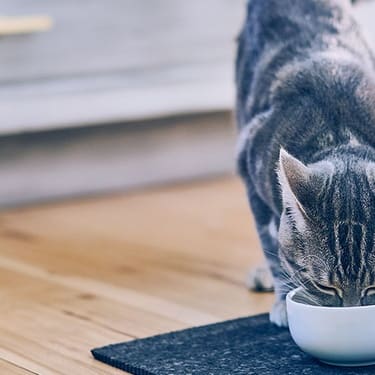
Good nutrition is about the right balance of nutrients. Learn more about health issues when feeding a cat food that has an improper nutritional balance from your friends at Hills Pet Nutrition.

Put your cat on a diet without them knowing
Our low calorie formula helps you control your cat's weight. It's packed with high-quality protein for building lean muscles, and made with purposeful ingredients for a flavorful, nutritious meal. Clinically proven antioxidants, Vitamin C+E, help promote a healthy immune system.
Put your cat on a diet without them knowing
Our low calorie formula helps you control your cat's weight. It's packed with high-quality protein for building lean muscles, and made with purposeful ingredients for a flavorful, nutritious meal. Clinically proven antioxidants, Vitamin C+E, help promote a healthy immune system.

